 Ever heard of a Community Supported Kitchen (CSK)? I hadn't until this Tuesday, when we went to visit the one called Three Stone Hearth in Berkeley, CA.
Ever heard of a Community Supported Kitchen (CSK)? I hadn't until this Tuesday, when we went to visit the one called Three Stone Hearth in Berkeley, CA.What is a CSK? It builds off of a growing trend in community-supported food suppliers, though the more commonly known version is a CSA, or Community Support Agriculture. The website LocalHarvest provides a handy central resource for anyone looking for more info on CSAs, which they define as:
...a popular way for consumers to buy local, seasonal food directly from a farmer. Here are the basics: a farmer offers a certain number of "shares" to the public. Typically the share consists of a box of vegetables, but other farm products may be included. Interested consumers purchase a share (aka a "membership" or a "subscription") and in return receive a box (bag, basket) of seasonal produce each week throughout the farming season.
With its history of generating new food movements (a la Chez Panisse), it's not surprising Berkeley also served as the birthplace for Three Stone, which I was told was the one and only CSK, but it looks like they have competition (though not really, since this one's in Portland).
We were given a background talk on Three Stone, toured the facilities, and spent four hours helping in the kitchen. To add to its one-of-a-kind vibe, Three Stone is in the cavernous space that previously housed my favorite Thai grocery store, Tuk Tuk (as in the mini-bus like vehicle used in Thailand). Half the space is still filled with Thai groceries and an actual Tuk Tuk bus. The other half is Three Stone Hearth, buzzing with music and volunteers, and saturated with slow-cooked, nutrient-rich food scents.
Our field trip also introduced us to Dr. Weston A. Price. Ever heard of him? Don't feel bad if you haven't, just like a CSK, I was clueless about this diet guru, called the "Charles Darwin of Nutrition." A Cleveland dentist in the early 1900s, Price traveled the world studying isolated human groups showing healthier traits and observing their diets in a quest to understand the causes of physical degeneration (including dental decay). Three Stone Hearth "follows the guidelines for human nutrition that were developed and discovered by indigenous and traditional peoples around the world and recorded by Dr. Weston A. Price." Among the guidelines Price set forward which you can learn more about at their website:
- Nutrient density
- Liberal use of traditional fats
- Raw and cultured dairy products
- Whole grains that have been soaked, sprouted, soured or naturally leavened
- Use of natural and unrefined sweeteners only, balanced by fats and proteins or lacto-fermented
- Animal products from pastured livestock
- Avoidance as much as possible of processed and chemical ingredients and toxic substances
None of these guidelines seem revolutionary. If we weren't all eating so much processed food of uncertain origins, we wouldn't need constant reminders of what "real" wholesome food is. But regardless, it's clear that Three Stone's food is high quality, and that they are extremely careful about sourcing ingredients. We were told some customers use them as a stepping stone from eating vegetarian back to eating animal protein, because they can be reassured Three Stone's meat is of the best quality. For individuals who want delicious, wholesome prepared foods but don't cook, I could also see Three Stone being a good option. Or for someone who's ill and looking for food at its most nourishing.
Three Stone does a weekly menu. My favorite thing was the Meaty Pint... exactly as it sounds, a delectable pint of extremely meaty stew. In our case, it had tons of chicken sp
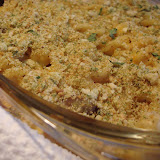

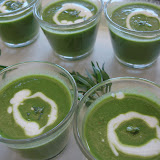







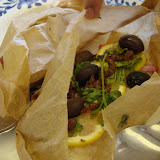




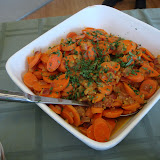
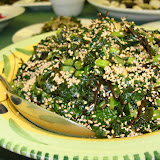

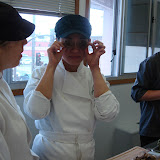

No comments:
Post a Comment